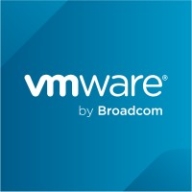

Spring Cloud Data Flow and Azure Data Factory are prominent products in the data processing arena. Azure Data Factory appears to have an edge with its diverse integrations and scalability options, whereas Spring Cloud Data Flow provides flexibility and support for Java-based complex workflows.
Features: Spring Cloud Data Flow supports microservice architectures and provides comprehensive data-processing capabilities, making it ideal for Java-based environments. It offers integration with Kubernetes and Docker, adding flexibility for various deployment scenarios. Azure Data Factory has a robust range of data connectors and integrates seamlessly with other Azure services. It provides a powerful user interface for creating ETL pipelines and supports real-time data processing workflows.
Room for Improvement: Spring Cloud Data Flow could enhance its ease of use for non-developers, improve integration with non-Java environments, and optimize its graphical interface for pipeline management. Azure Data Factory would benefit from improved documentation, expanded offline capabilities, and additional real-time processing features to enhance its usability outside the Azure ecosystem.
Ease of Deployment and Customer Service: Spring Cloud Data Flow offers deployment flexibility through Kubernetes and Docker, with strong community and enterprise support available. Azure Data Factory focuses on a cloud-first approach with global availability, ensuring a simpler deployment process and scalability. It benefits from Azure's comprehensive customer service infrastructure, often resulting in faster setup times.
Pricing and ROI: Spring Cloud Data Flow provides open-source access that can reduce costs, though enterprise support incurs additional fees. Azure Data Factory operates on a pay-as-you-go pricing model, aligning with scalability needs, offering potentially better ROI for larger deployments. While Spring Cloud Data Flow may lower initial costs, Azure Data Factory provides a predictable cost model for scaling environments.
| Product | Market Share (%) |
|---|---|
| Azure Data Factory | 3.7% |
| Spring Cloud Data Flow | 1.1% |
| Other | 95.2% |

| Company Size | Count |
|---|---|
| Small Business | 31 |
| Midsize Enterprise | 19 |
| Large Enterprise | 57 |
| Company Size | Count |
|---|---|
| Small Business | 3 |
| Midsize Enterprise | 1 |
| Large Enterprise | 5 |
Azure Data Factory efficiently manages and integrates data from various sources, enabling seamless movement and transformation across platforms. Its valuable features include seamless integration with Azure services, handling large data volumes, flexible transformation, user-friendly interface, extensive connectors, and scalability. Users have experienced improved team performance, workflow simplification, enhanced collaboration, streamlined processes, and boosted productivity.
Spring Cloud Data Flow is a toolkit for building data integration and real-time data processing pipelines.
Pipelines consist of Spring Boot apps, built using the Spring Cloud Stream or Spring Cloud Task microservice frameworks. This makes Spring Cloud Data Flow suitable for a range of data processing use cases, from import/export to event streaming and predictive analytics. Use Spring Cloud Data Flow to connect your Enterprise to the Internet of Anything—mobile devices, sensors, wearables, automobiles, and more.
We monitor all Data Integration reviews to prevent fraudulent reviews and keep review quality high. We do not post reviews by company employees or direct competitors. We validate each review for authenticity via cross-reference with LinkedIn, and personal follow-up with the reviewer when necessary.